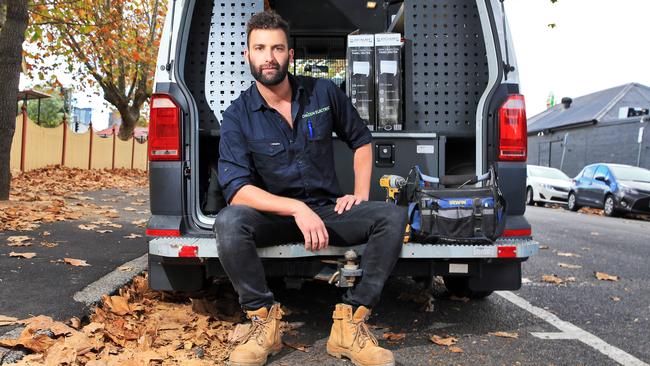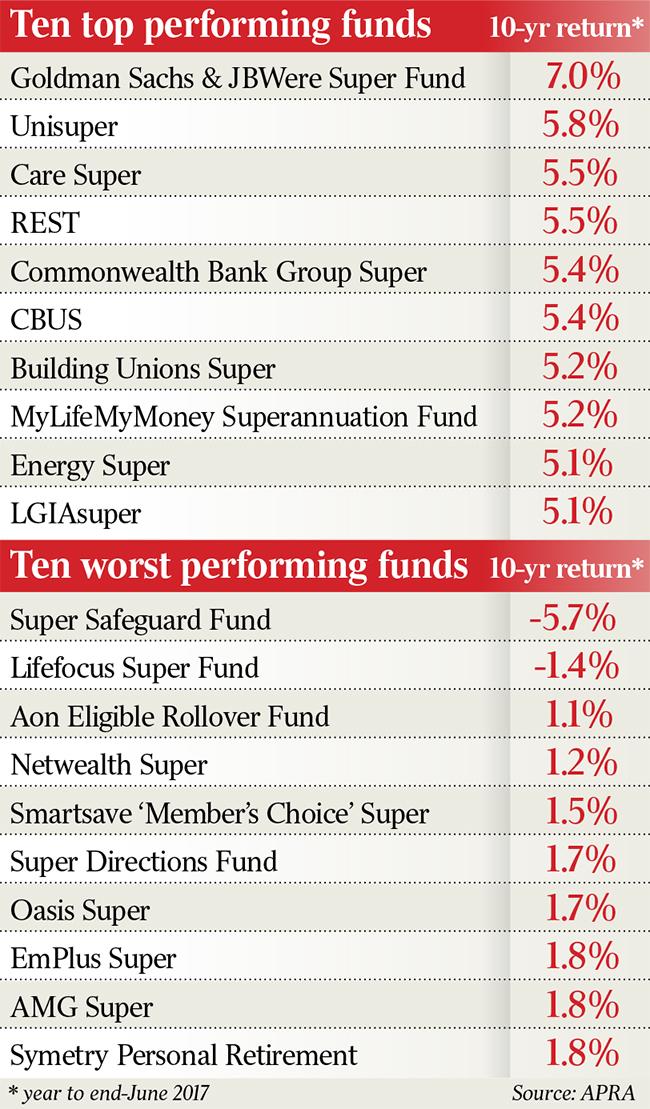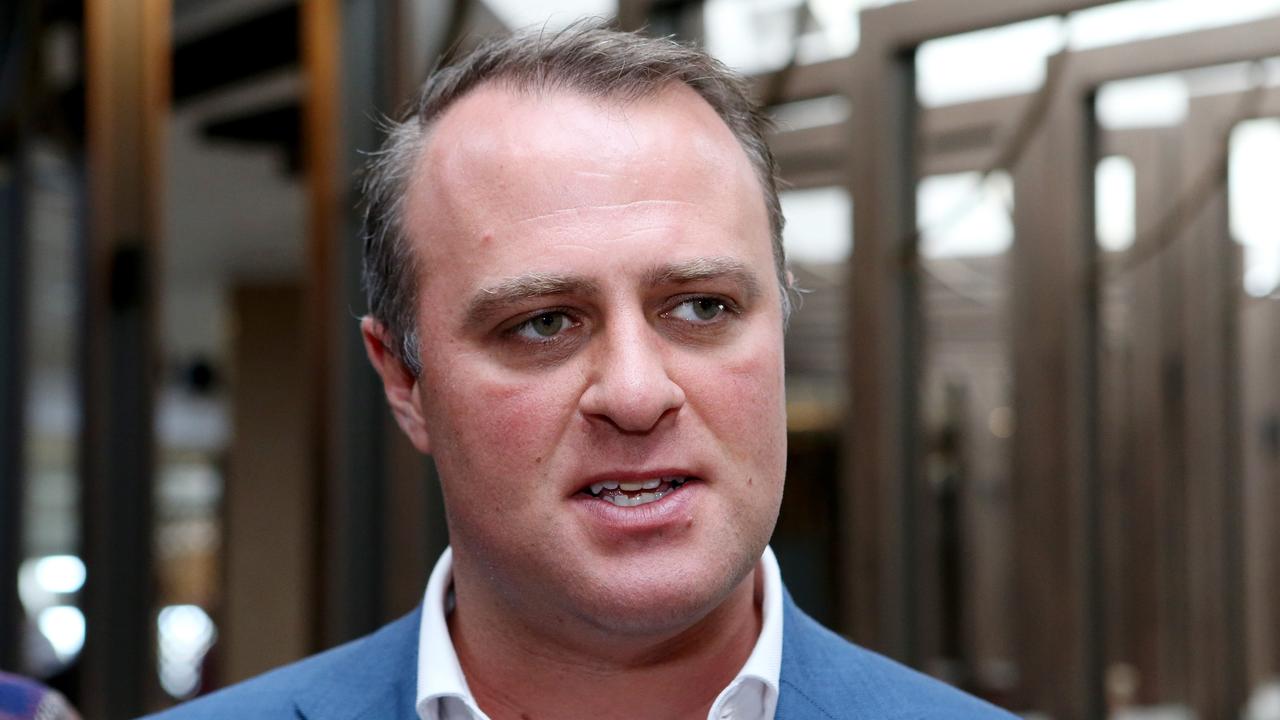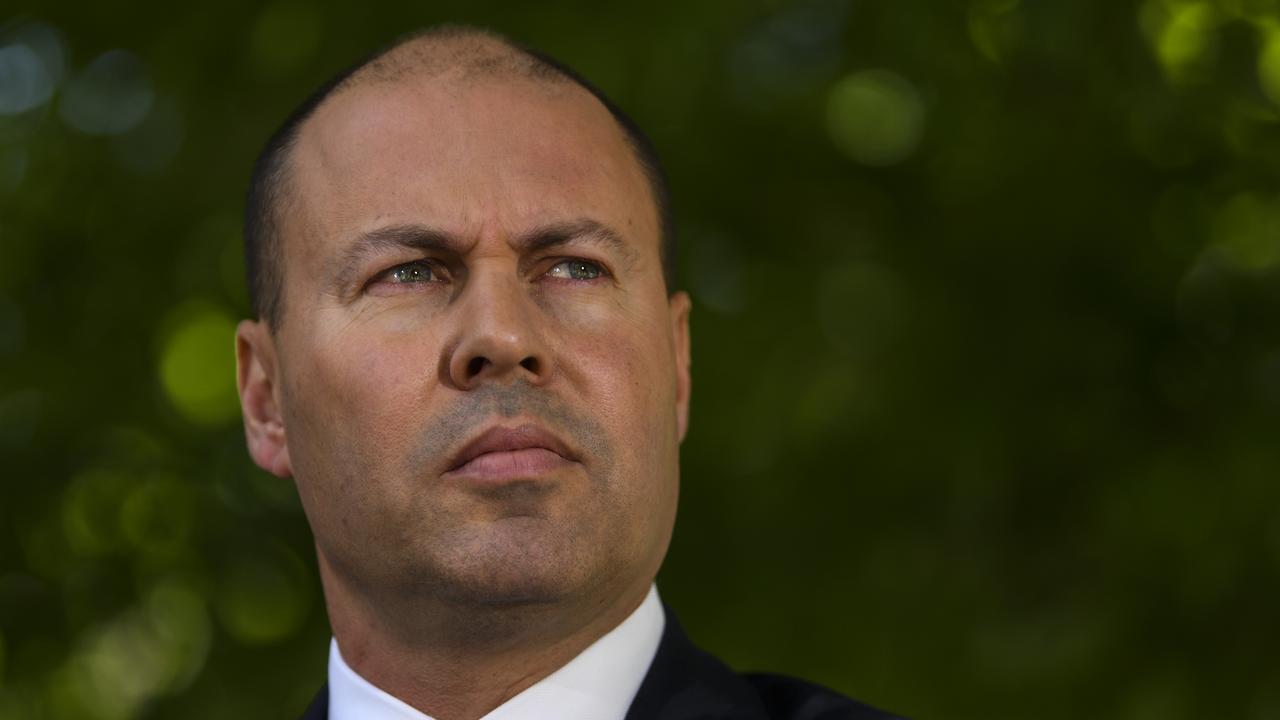O’Dwyer pours fuel on the fire as plan sparks all-in IR brawl
Kelly O’Dwyer has ignited a brawl with Labor and unions over the proposal to decouple the super industry from the IR system.

Financial Services Minister Kelly O’Dwyer has launched an attack on the “highly politicised” Fair Work Commission, igniting a brawl with Labor and the union movement over the Productivity Commission’s proposal to decouple the $2.6 trillion superannuation industry from the industrial relations system.
The superannuation sector also came out swinging at the landmark review, which found funds were often working in their own interests rather than those of their members, and recommended unshackling default super arrangements from the enterprise bargaining system.
The changes, if adopted by the government, are set to reduce sharply the number of small union-linked funds in the super system amid a flurry of mergers.
The report showed the need for the super sector “to be taken out of the industrial relations sphere” and divorced from workplace bargaining deals, Ms O’Dwyer said.
Labelling Ms O’Dwyer a “former banker”, the union movement warned that breaking the link between industry awards, unions and employer organisations was misguided.
CTU assistant secretary Scott Connolly said: “Superannuation is an industrial right and comes from workers’ deferred wages. The link between employers, unions, workers and their funds has been a key reason why industry super funds have systemically outperformed bank-owned super funds, and are a pillar of the success of our retirement system.”
Justin Stiles, 29, an electrician working in Melbourne’s inner-south, supported the proposal to break the link between superannuation and enterprise bargaining agreements.
“When I first started about 10 years ago, I was signed up to Cbus Super like everyone else — it’s the industry standard,” he said. “I now have a self-managed fund as well because it gives me a bit more flexibility with how I can invest.”
Mr Stiles, who started his own business and employs a small team of workers, said the current system disempowered younger workers who might not know what fund was best for them.
“I think it’s a great idea to decouple them. When you first start out, you’re a bit naive and ignorant about what’s out there,” he said.
He said he had learned from his own financial past and did not put his own new workers into default super funds. They chose the fund. “I get the guys to nominate whatever super fund they want me to put it in when they sign up,” he said. “Who am I to choose where their money goes?”
Ms O’Dwyer hailed the commission’s proposal for an independent panel to pick 10 “best in show” funds.
“I think they’ve come up with a really clever solution to be able to have a best-in-show arrangement where you’ve got the top 10 performing funds being selected by an independent organisation that will be able to look at the key metrics that will be in members’ best interests, rather than the Fair Work Commission, which we know is an industrial commission which is highly politicised and not always acting in the interests of members.’’
The proposed panel — unlike the Bill Shorten-appointed Fair Work Commission default super expert panel that was abolished in 2014 after the wealth management industry complained it was not independent — would be at arm’s length of government, outside the FWC and subject to judicial review.
Productivity Commission recommendations are also set to weed out small and underperforming union-linked funds from the sector.
Under the current “equal representation” model, union appointees make up about half of all board directors on industry funds.
Opposition Treasury spokesman Chris Bowen said the government had chosen to engage in an “ideological war” against industry funds. “The Productivity Commission report talks about a performance divide and finds that eight out of the top 10 performing funds are industry funds,” he said.
Under the proposals, more than 100 smaller funds, many union-backed industry funds, will be pressured to merge as, under the commission’s proposals, they will lose out on their share of the $1 billion contributed each year by new workers. At present the industry fund sector takes the lion’s share of default super, where the savings of the least-engaged members are managed, thanks to deals negotiated through enterprise bargaining agreements.
The Coalition has claimed $50 million had been paid by industry funds to unions over the past decade. Industry funds say the majority of the $50m is $40,000-$50,000 in annual directors’ fees to appointed board members, who gave the money back to their union as standard practice and did not take it as income.
Other cash that went to unions was for marketing, including sponsorship of conferences.
Institute of Public Affairs policy director Simon Breheny said the ACTU was protesting at the decoupling of enterprise agreements and super fund selection because it would lead to a depletion of trade union funds. “Clearly the ACTU is worried that the river of golds that flow from the industry funds, via directors fees and direct contributions, will dry up,” he said.
Construction union assistant national secretary Dave Noonan said the money received from directors’ fees was a small percentage of the union’s income, which was largely generated from membership subscriptions.
David Elia, chief executive of the $33bn fund Hostplus, warned against taking the selection process for best-performing funds out of the hands of the FWC. “It seems that the PC has found that industry super funds like Hostplus form a strong safety net for workers who do not choose their own super fund,” he said.
“Hostplus has long supported a merit-based selection process of default funds. Superannuation is deferred wages and a condition of employment. To this end, I believe that it is only proper that the FWC continues to have oversight and jurisdiction over the selection of default funds that are in the best interests of members.”
David Whiteley, chief executive of the Industry Super Australia lobby group, said not-for-profit funds had long supported a merit-based selection process of default funds, but putting the panel outside the FWC risked breaking the connection between super and wages.
Mr Whiteley said young people did not have the capability to make sound financial decisions for themselves.
“We’re now going to be asking teenagers to select a fund that they will keep for life. There would be no greater cohort that would be less engaged and possibly misinformed other than teenagers,” he said.
ASFA chief executive Martin Fahy said the commission hadn’t considered the impact of reducing the viability of small funds, which would “dramatically change the landscape of superannuation”.
Financial Services Council chief executive Sally Loane, who represents the for-profit wealth management industry, raised concerns about creating a shortlist of 10 funds. “We are cautious about a panel of experts being independent. We would need to see more detail around that,” she said.
Additional reporting: Richard Ferguson




To join the conversation, please log in. Don't have an account? Register
Join the conversation, you are commenting as Logout